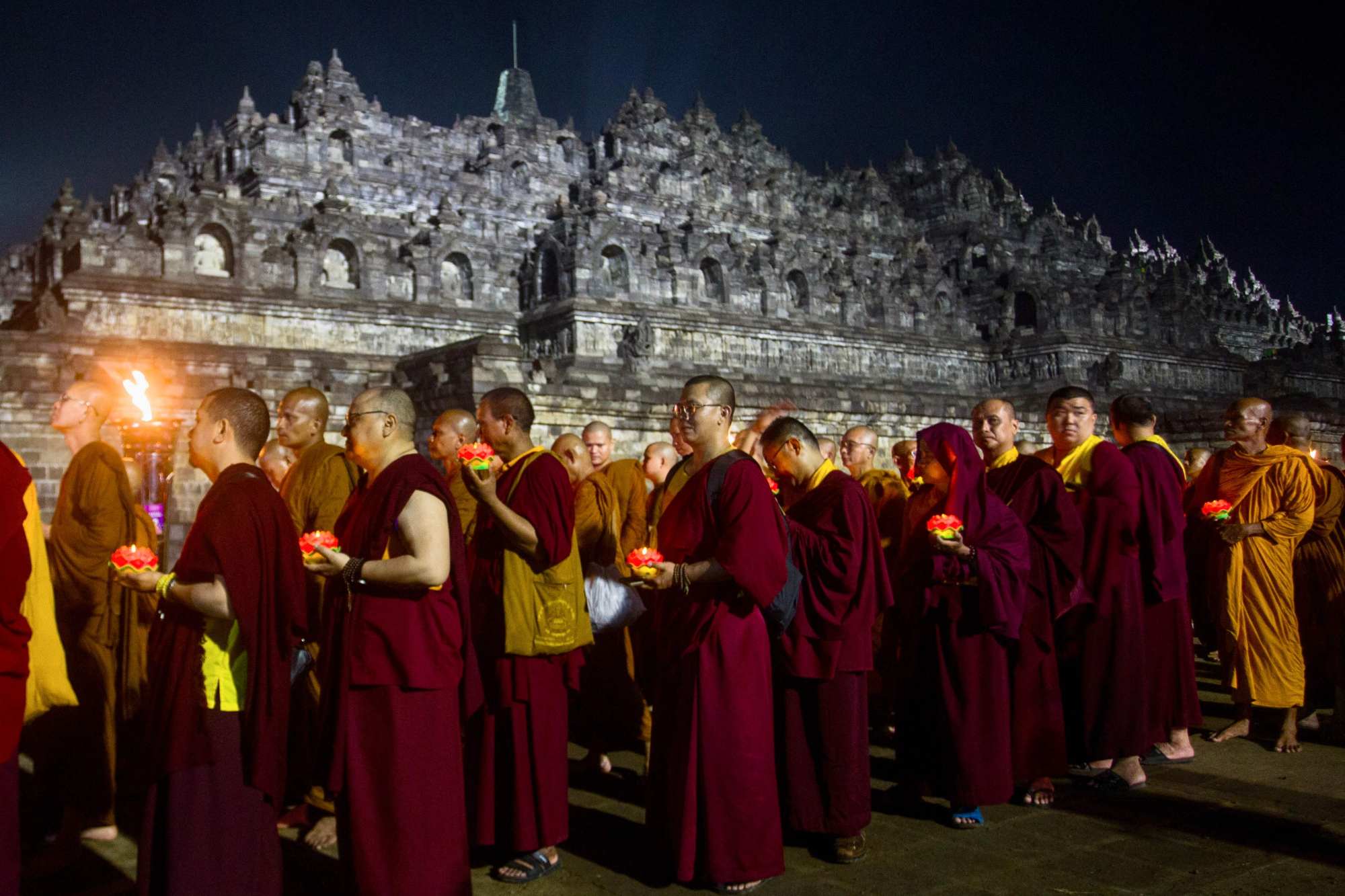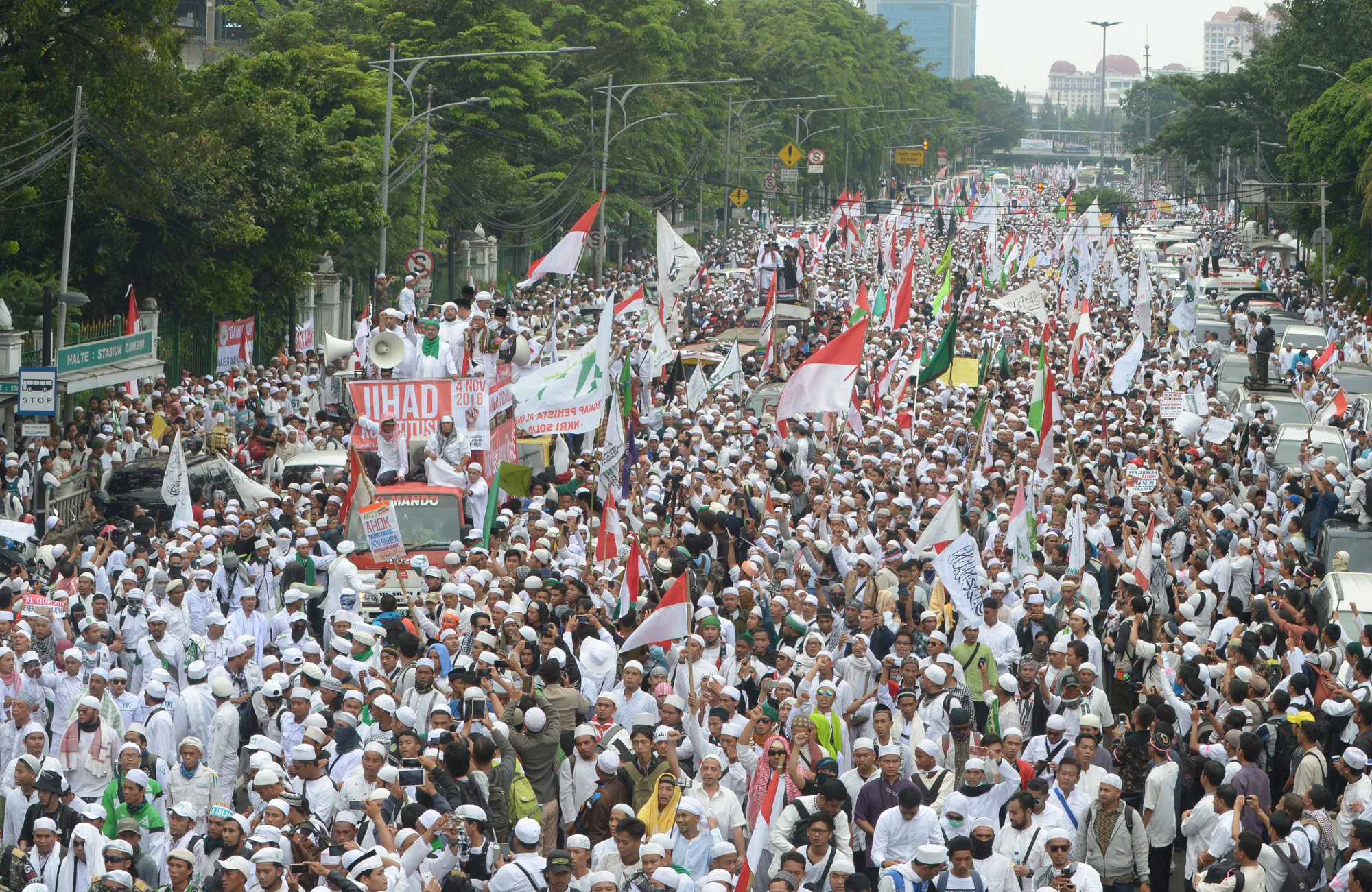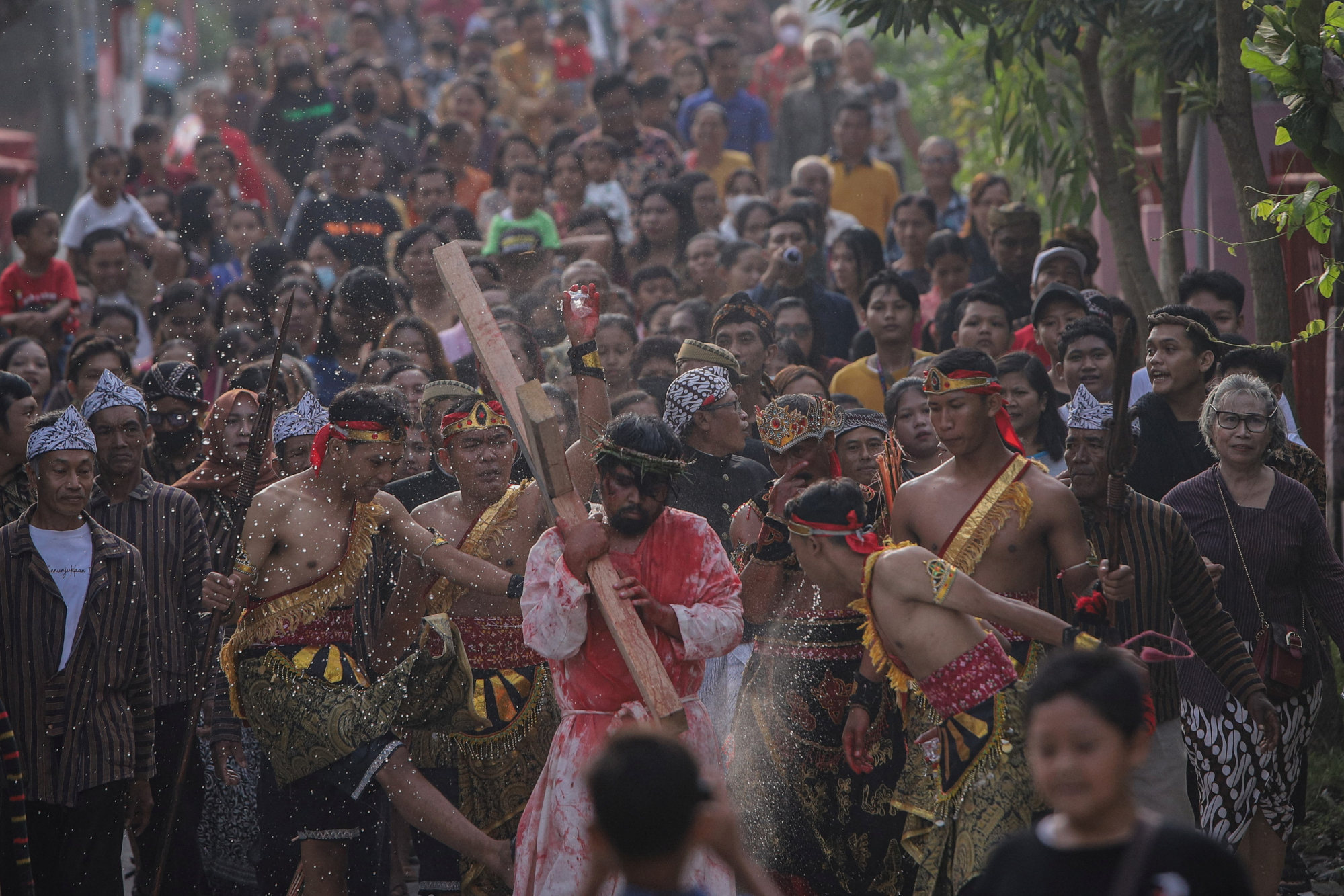
Indonesian mosque’s hosting of Buddhist monks sparks debate on religious tolerance
- Although the monks did not occupy the mosque’s main prayer hall, the incident was criticised by an influential Muslim cleric
A seeming act of tolerance by a mosque in Central Java did not turn out as planned.
In May, 44 monks from Thailand, Indonesia, Malaysia and Singapore were making their way on foot from Pudak Payung village, Semarang to the famous Borobudur.
The monks’ 78km (48-mile) journey was an annual Vesak Day ritual. Pilgrims would normally make several stops, for meals and rest. A Nahdlatul Ulama (NU)-affiliated mosque in Bengkal village, Temanggung regency, Central Java, agreed to host them.
While this gesture showed interfaith tolerance, it drew flak from prominent Indonesian religious scholars and netizens. This episode proves that interfaith relations remain fragile in Indonesia.
The monks arrived at the mosque and occupied its veranda, a space outside the main prayer hall. They rested, ate, and prayed in a Buddhist-style ritual but avoided the main hall. The Muslim hosts were conscious not to offend, so they segregated these guests but left open the doors to the main hall. The mosque is a popular resting place because it is well-connected and has a huge car park.

This noble gesture did not sit well with Cholil Nafis, a prominent member of the Indonesian Council of Ulema (MUI).
Cholil is a key leader of this conservative network of religious scholars formed by former president Suharto in 1975 to issue fatwa, or legal rulings, some of which have caused tensions, especially on interfaith and intra-faith issues, gender, and halal consumption. Cholil is regarded as MUI’s poster boy and rising star, and has a wide following on social media platforms Instagram and X.
Cholil said the mosque was too accommodating and that a mosque is a sacred place where Muslims perform religious rituals. Instead of allowing the monks to occupy the mosque’s veranda, he said the mosque should have received them in its office, separate from the sacred prayer area.
He also said the Ministry of Religious Affairs should have hosted the monks. Within two days, his Instagram post was seen by over 300,000 people, drawing 1,808 comments and 5,847 likes.
Despite this traction on social media, Cholil’s personal views were not universally accepted. A member of Cholil’s organisation sought to defuse tensions. Zainut Tauhid Sa’adi, deputy chairman of MUI’s advisory council, called on everyone to end the controversy and cool tensions between Cholil’s opponents and supporters.

Historically, MUI would have been capable of mobilising the masses towards its goals. MUI took part in rallies in 2017 that brought down Chinese Indonesian-Christian Jakarta governor Basuki Tjahaja Purnama, whose nickname was Ahok.
Controversially, its fatwa has triggered communal violence towards religious minorities, including Ahmadiyya and Shias, during Susilo Bambang Yudhoyono’s presidency. In this light, the MUI leaders’ response to the issue of monks in the mosque seems comparatively meek.
Cholil’s supporters praised him for being firm in upholding the principle of Islam and they contend that non-Muslims, including those monks, must not perform Buddhist prayers in any part of a mosque, as the space is exclusively for Muslims. To them, the mosque is the house of Allah.
Other users on social media and in the mainstream media, however, praised the mosque management for its tolerance of the monks. This shows that many Indonesian Muslims still uphold a commitment to interfaith relations despite occasional tensions. The irony is that Cholil himself had, in the past, contributed to promoting interfaith dialogues, better governance and Muslim self-development.
This controversy is a reminder that a popular religious figure such as Cholil must be careful when commenting on social media, especially since he comes from a prominent institution such as MUI.

Some may consider his remarks, albeit uttered in his personal capacity, as representing MUI. Moreover, there are religious opinions within Islam that do not strictly forbid the use of mosques by those in need, which the monks arguably were. That the NU leadership did not object to the mosque’s welcome for the monks underscores its tacit acceptance; other Islamic scholars must respect this diversity of views, which is a merit in Islam.
Even the local leaders, including Temanggung government and security officials, publicly stated that the welcome was appropriate because the veranda was not in the mosque’s main area of prayer. Thus, it was not an act that should offend Muslims.
This episode shows that Indonesia can still be a model in promoting tolerance, a diversity of views, and respect for local or non-Muslim cultures and practices. The act would have been unthinkable in other parts of Southeast Asia.
In most parts of Malaysia, for instance, Christians and non-Muslims cannot use certain words that Muslims see as belonging exclusively to Islam. Unlike many Islamic countries in the Middle East, which continue to view religious diversity with suspicion, in Indonesia, various ulama have nurtured tolerance for many generations since the time of the Wali Songo, the nine saints who disseminated Islam in Java.

